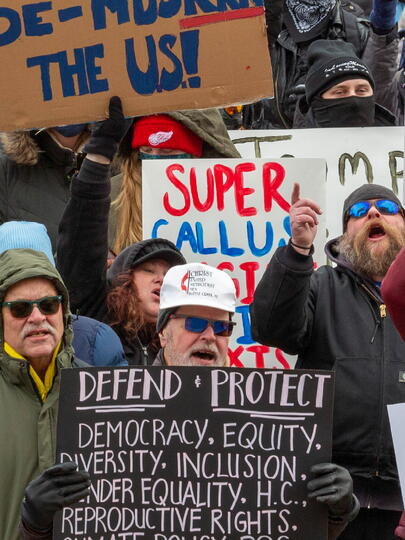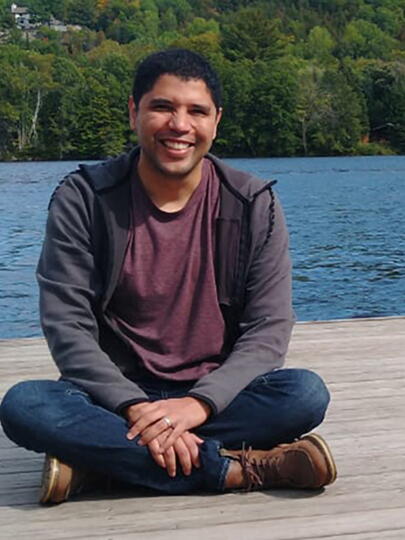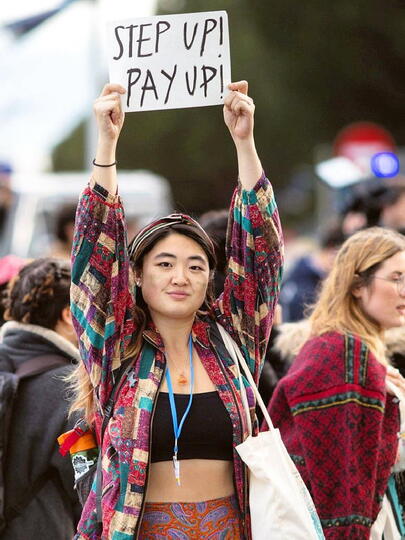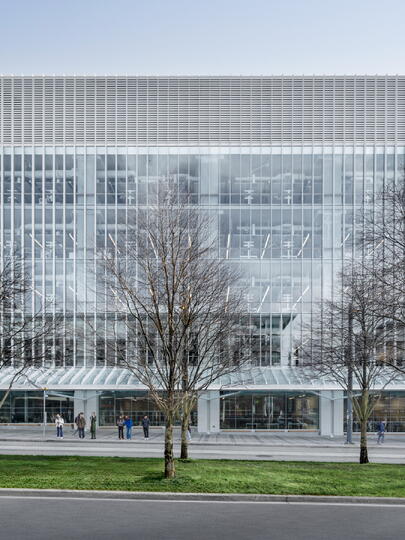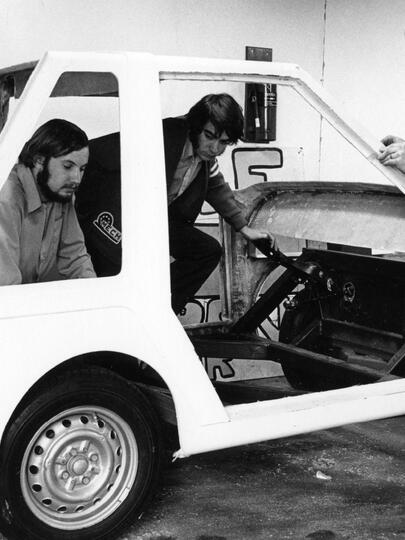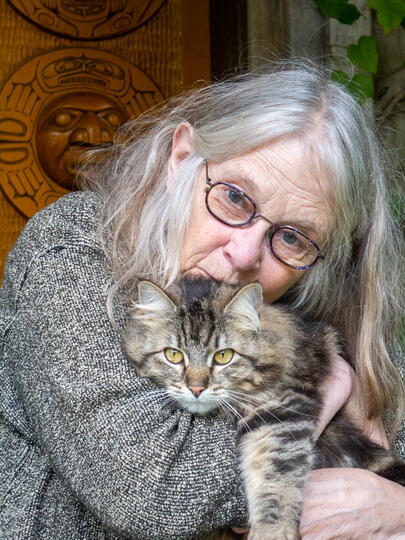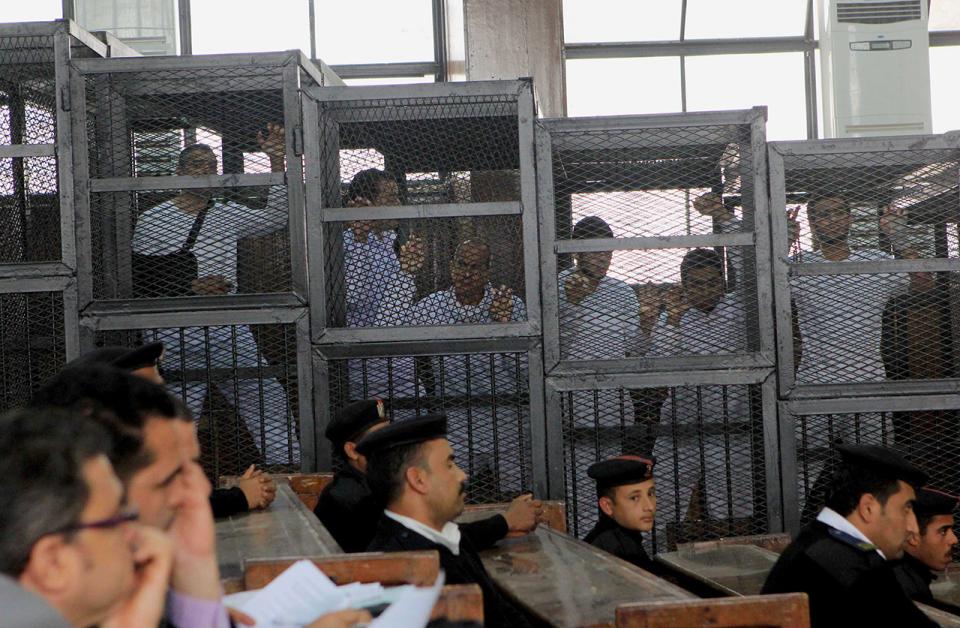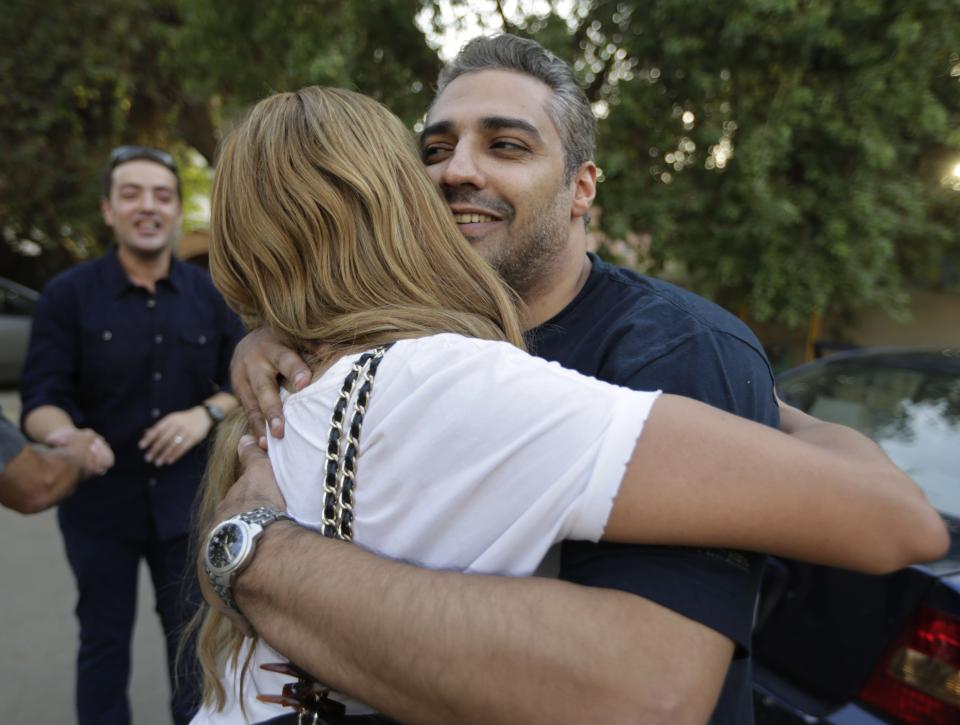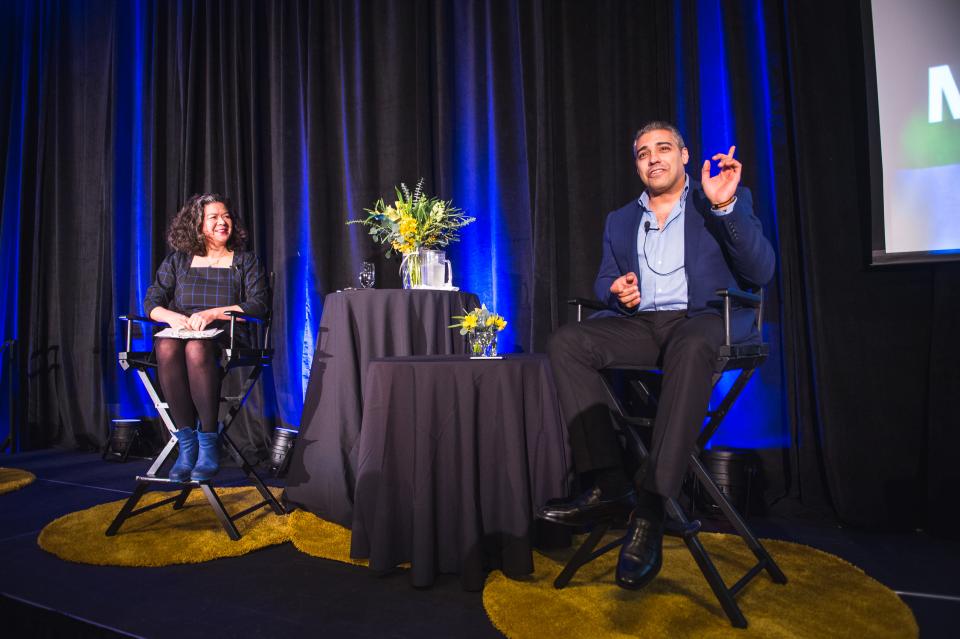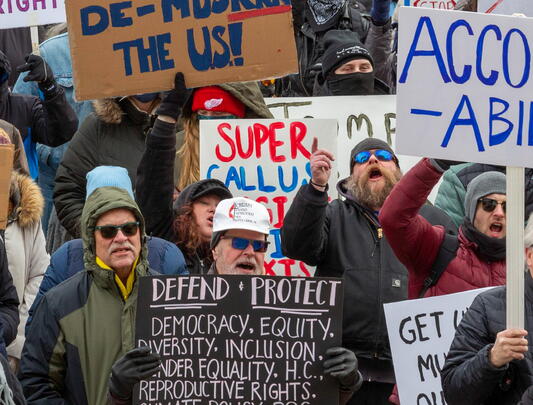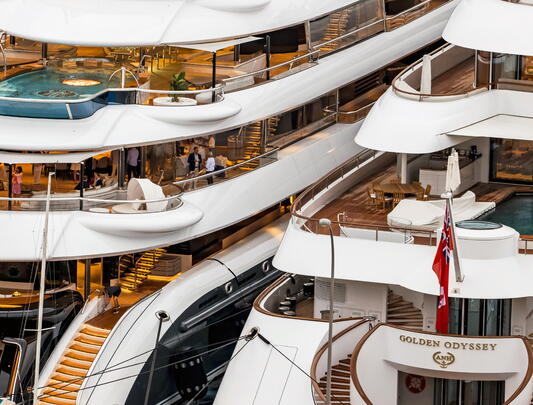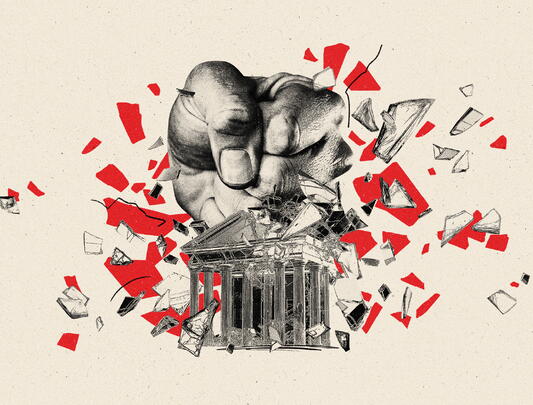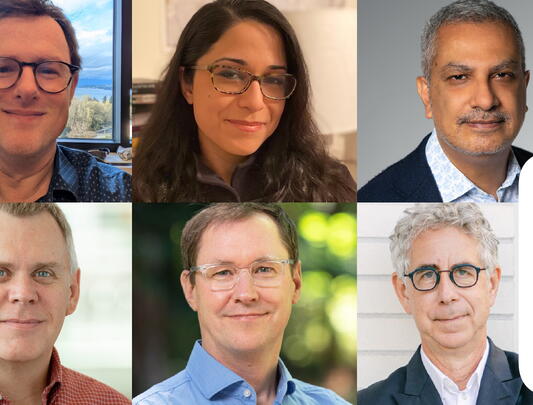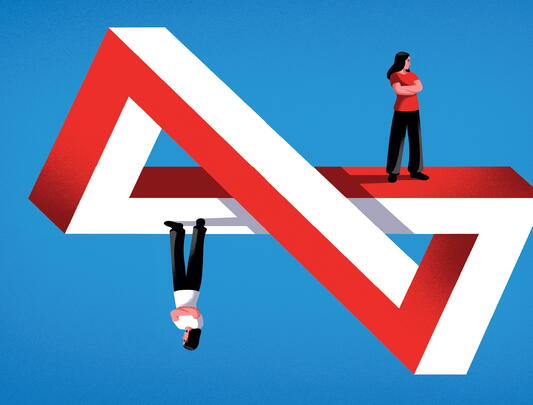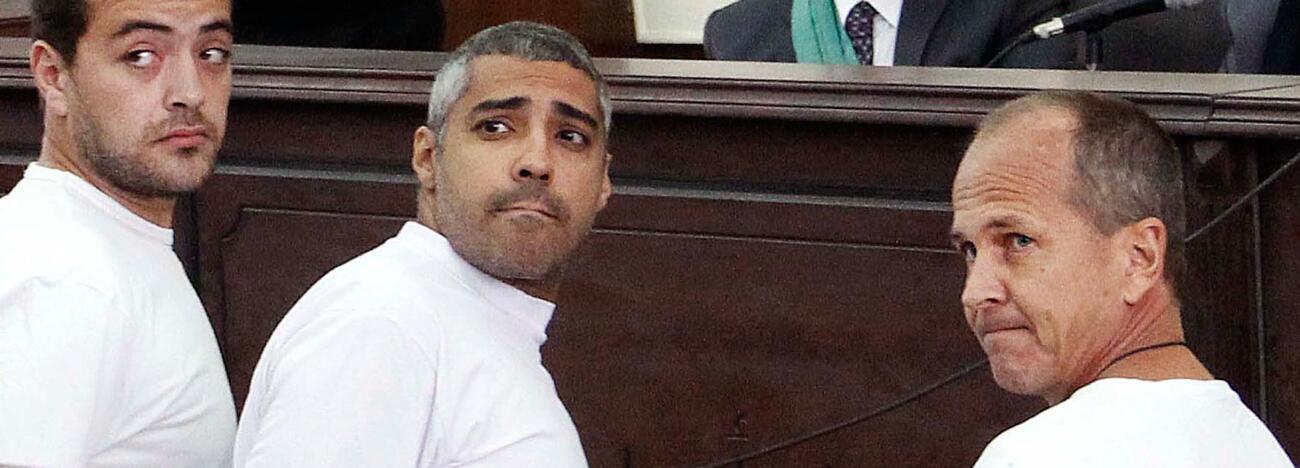
438 Days in an Egyptian Jail
Mohamed Fahmy, in his own words:
“I always wanted to be the voice of the voiceless and champion those oppressed, and make a difference through my story. Throughout [a] career -- any journalist on the ground will tell you that some stories result in immediate changes.”
“Journalism is a very honourable craft because it is part of any healthy democratic society, but there is also an allure that comes with it, where you are keeping these leaders accountable and making sure that those who are actually elected are doing their job, and this watchdog approach is very important.”
“Right now what we’re facing in the world is an unprecedented breach of human rights and the rights to freedom of expression, and we’re being, as journalists, targeted by both governments and extremist groups, and there’s almost no neutral ground to go and operate and to do our job.”
“I’ve lost so many friends in the field. Good friends. Good journalists… When you get into this job it’s an assumed risk that you will get shot at, you will get tear-gassed, you will be targeted. It’s not an easy job, but you’d never expect that it would come in the way that it happened to me. I mean, in Egypt there was no armed conflict. There was tension on the streets, there were protests – [but] I’ve covered stories that were much more intense, like the Libyan Revolution or the Iraqi war, where there [are] actual weapons and people killing each other, and two armies fighting – but you never expected that you would suddenly be sitting in your office and someone would come in and grab you.”
“I’ve lost so many friends in the field. Good friends. Good journalists.”
“We thought it would be over in a couple of days, maybe a couple of weeks, and then when it was referred to court -- this was when I started panicking. I realized that we have now been victims of this branding of the Muslim Brotherhood as terrorists and the courts were very aggressive towards anything Qatar-related, Al-Jazeera-related, Muslim Brotherhood-related, and I realized that we needed the Canadian Government to step up and do their best job. And my network and my family had to humanize me and come up on the screen and show the world that ‘this guy is not a terrorist,’ and speak on my behalf.”
“I didn’t give up hope, but there were moments that were really bad: when I got sentenced to seven years and I was living with ISIS and al-Qaeda fighters, and this concrete jungle became my home… You’re changing your attire to the attire of a convicted prisoner. You start worrying you might not get out. I personally have covered so many stories of activists and others who have spent so many years in prison for crimes they didn’t commit, and now I was becoming a statistic and I didn’t want to languish in that prison and be forgotten.”
“We spend our career trying to get so close to these [jihadists and terrorists] to report the story, and now they’re right there in front of you. They did a lot of talking, and I did a lot of researching and interviewing. They can’t harm you because there [are] bars between [you] – I was safe, then. They’re very demented people, obviously, and the conversations were very intense and confrontational. They would wonder: ‘why are you working with infidels? Why are you helping them?’… But I also learned a lot from them. A lot of them spoke very good English. A lot of them were very tech-savvy. A lot of them had minds that are weak – they’re easy prey – and that’s why organizations like ISIS and al-Qaeda, they target people like that who are confused -- they have an identity crisis, and they’re easy targets. But I also realized that we need to have a proactive approach in order to defeat these people. They win when we struggle with what to do and when we don’t have a specific mechanism in fighting them. And I’ve also seen how they were celebrating when they hear that Canada, for example, or Australia has instated a law (like C-51) that allows access to meta-data information on your phones without protection [for] journalists. To them that’s a victory.”
“…we need to have a proactive approach in order to defeat these people. They win when we struggle with what to do and when we don’t have a specific mechanism in fighting them.”
“I believe [Charlie Hebdo] should be able to draw any cartoon they want to draw. I was just in Paris and I spent a lot of time with French cartoonists. Some of them had security guards when we were sitting. It was unbelievable. They continue to express their thoughts openly. I don’t believe any religious ideologies should be imposed on anyone. If they don’t even believe in the prophet, then why can’t they draw him? Why can’t they express their ideas through that?”
“I went to Paris, twice, days after the [November] attacks. I was scheduled to speak there, and I called and I [asked] if we were still having this talk, and they said: yes, come – this is a message of defiance to these terrorists that you cannot deter us. So I went and I spoke on the panel and I openly expressed my views and what we can do, and ideas to counter these kind of ideologies.”
“I do believe that bombs alone [are] not going to solve the problem. I do believe that civil societies have a major role in being able to help families who may fear that their children are being exposed to these terrorists – these families need somewhere to go to get help. They can’t do it alone… I realized that a lot of these minorities were not integrated into the system. [Those who became involved in extremism] may have not been ideologically close to what ISIS does, but they went there as a last resort. And they were not able to get jobs. A lot of them were sitting in the coffee shops on the corners all day and they just got sucked in.”
“I also meet with government officials… All these governments want to hear what they do that works and what that doesn’t work in terms of extracting their citizens from prison [and] in terms of what they can do to deter these terrorists. I was very happy to share a lot of my insights in order to get a more progressive approach towards these people and what they do.”
“I think that sense of fight [in me] possibly comes because I was in Kuwait when Iraq invaded Kuwait. There is sort of a war of culture that the Middle East is engrossed in, and whether you’re in Egypt or Libya there’s always this fight for democracy, and there’s always this fighting for your rights. Here in Canada we’re blessed. We’re blessed to have a court system that is independent. We’re blessed that we have labour unions. We’re blessed that we have an independent media. So I think that’s where [my sense of fight] comes from, and the adrenalin that I had throughout the whole two years of fighting for my freedom. Now I walk the streets here and it’s complete serenity and it’s beautiful.”
"Here in Canada we’re blessed. We’re blessed to have a court system that is independent. We’re blessed that we have labour unions. We’re blessed that we have an independent media."
“I had 50,000 Canadians who signed the petition. People don’t realize that a petition does matter, because our lawyer used it in court. The journalists that were defending me, they used the petition as a source in their articles. So I believe that Tweeting, rallying, petitioning – everything helps. And I believe it did help release me.”
“I get really angry every day when I see my friends on TV, still being detained and beaten. This year alone, more than 70 journalists have been killed and about 200 still remain behind bars across the globe.”
“This charter I’ve been working on with Amnesty International…[is] a charter to better protect Canadians working abroad. I do believe – and that’s the main aspect of the charter – that it’s time for Canada to make it an obligation, a law, to intervene to help protect Canadians in prison abroad. It cannot just be [at] the discretion of the foreign ministry. This charter also introduces ideas, [which] stem from my experience, on when a minister should intervene, how they should deal with lawyers when you are in prison abroad, how they should deal with the families. And I say it with a constructive tone because I do believe in my case the ambassadors did a great job. However, I did feel -- and many of them have told me [this] – that they were shackled by Ottawa’s hyper-Conservative approach at the time.”
“I’m very very serious about this charter and we have endorsements from former Canadian ambassadors, from civil liberties groups, from former detainees like Maher Arar and others who have suffered and seen it first-hand how it is to not have the correct approach, which could mean life or death.”
“Mr. Harper delegated his responsibility to the ambassadors and junior ministers when a phone call from him could have extracted me out of that prison, for example, where I was sleeping on the floor with a broken shoulder. My family was finally able to move me to a hospital because they were more aggressive in the way they intervened. The best time, for example, to intervene is between the arrest and referral to court. There’s a window of maybe two weeks, one week. When it goes to court, it’s clogged and it takes forever and it’s very hard for the government to intervene.”
“If you go through this experience and you’re not a changed man then there’s something wrong with you. It has changed me as a journalist in the way that I now believe in journalism more than I ever did -- because I saw what it did, how it helped me as a person and as a defendant. Now I find myself just very moved by any story, and I want to tweet and help this person, or try to expose, and that’s why I started the Fahmy Foundation [with my lawyers and with my wife] in Canada, here in Vancouver…. We provide financial assistance to journalists who are imprisoned, or risking imprisonment, and we also advocate for them. I am using the contacts I have nurtured throughout my career with officials across the globe, with syndicates and the media, and I advocate for them. I speak to the families, I speak to the lawyers, I get the story right.”
“If you go through this experience and you’re not a changed man then there’s something wrong with you. It has changed me as a journalist in the way that I now believe in journalism more than I ever did…”
“Every day in the morning, now, when I wake up, I still have this spirit of turning this suffering into something good … because it could always be worse. I was in prison when my colleague Steven Sotloff … was beheaded by ISIS. And I saw these people celebrating it. I was in prison when Charlie Hebdo happened, and I saw these extremists celebrating it. It was just horrific. Some of these images stay with me and it now just sort of empowers me. So I think that we have to stay resilient and proactive and always know that we have to fight this ideology that’s spreading everywhere, and the government can’t do it alone, the media can’t do it alone, everybody has a role, and that’s how I live now.”
Podcast of complete interview, part of alumni UBC’s Master Mind Master Class program series (1:11:13)
Follow Mohamed Fahmy on Twitter: @MFFahmy11
Fahmy Foundation: http://www.fahmyfoundation.com/ @FahmyFoundation
